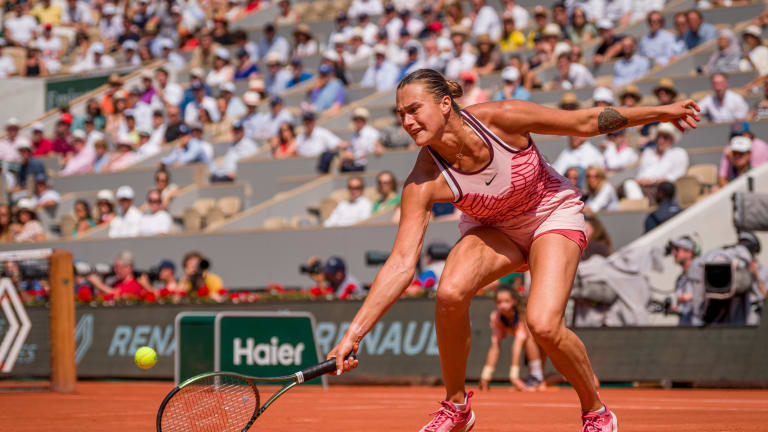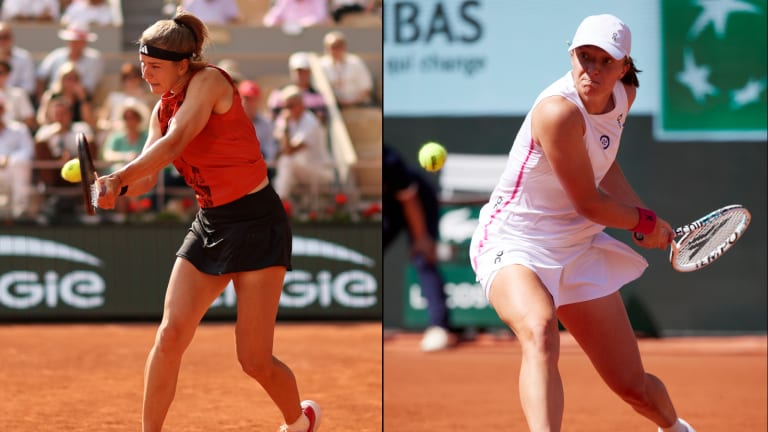Roland Garros
Roland Garros Rally: Discussing a thrilling semifinal Thursday, and a hopefully fascinating women's final
By Jun 09, 2023Roland Garros
Rafael Nadal to be honored with 'exceptional' tribute on opening day of Roland Garros
By Apr 17, 2025Roland Garros
French Open organizers introduce draw to access ticket sales
By Jan 07, 2025Roland Garros
Coaches Corner: Juan Carlos Ferrero proves essential to Carlos Alcaraz's Roland Garros success
By Jun 14, 2024Roland Garros
What’s next for Novak and Nadal? Four ATP storylines after the Paris fortnight
By Jun 10, 2024Roland Garros
Naomi’s resurgence, Iga on grass: Four WTA storylines after the Paris fortnight
By Jun 10, 2024Roland Garros
Carlos Alcaraz becomes the clay-court champion that he—and we—always knew was possible
By Jun 09, 2024Roland Garros
Coco Gauff wins first Grand Slam doubles title with Katerina Siniakova in dream team debut
By Jun 09, 2024Roland Garros
Coco Gauff is a Grand Slam champion in singles and doubles, exceeding her own expectations
By Jun 09, 2024Roland Garros
From Rafa to Iga: as one owner of Roland Garros departs, a new one has moved in
By Jun 08, 2024Roland Garros
Roland Garros Rally: Discussing a thrilling semifinal Thursday, and a hopefully fascinating women's final
Iga Swiatek fended off a stiff challenge from Beatriz Haddad Maia, while Karolina Muchova rose from the dead against Aryna Sabalenka.
Published Jun 09, 2023
Advertising
Advertising
Advertising

After staying so much calmer under pressure for most of this season, Sabalenka couldn’t quite quiet her nerves at the end of the first set or the end of the third.
© © Andy Cheung / ArcK Images / Getty Images
Advertising
Advertising

In the final, look for Muchova to try and explore and execute creative patterns that keep Swiatek off-balance.
Advertising

Game, Set, Bet: Credit One Charleston Open
Everything you need to know about this loaded 500—presented by BetMGM.